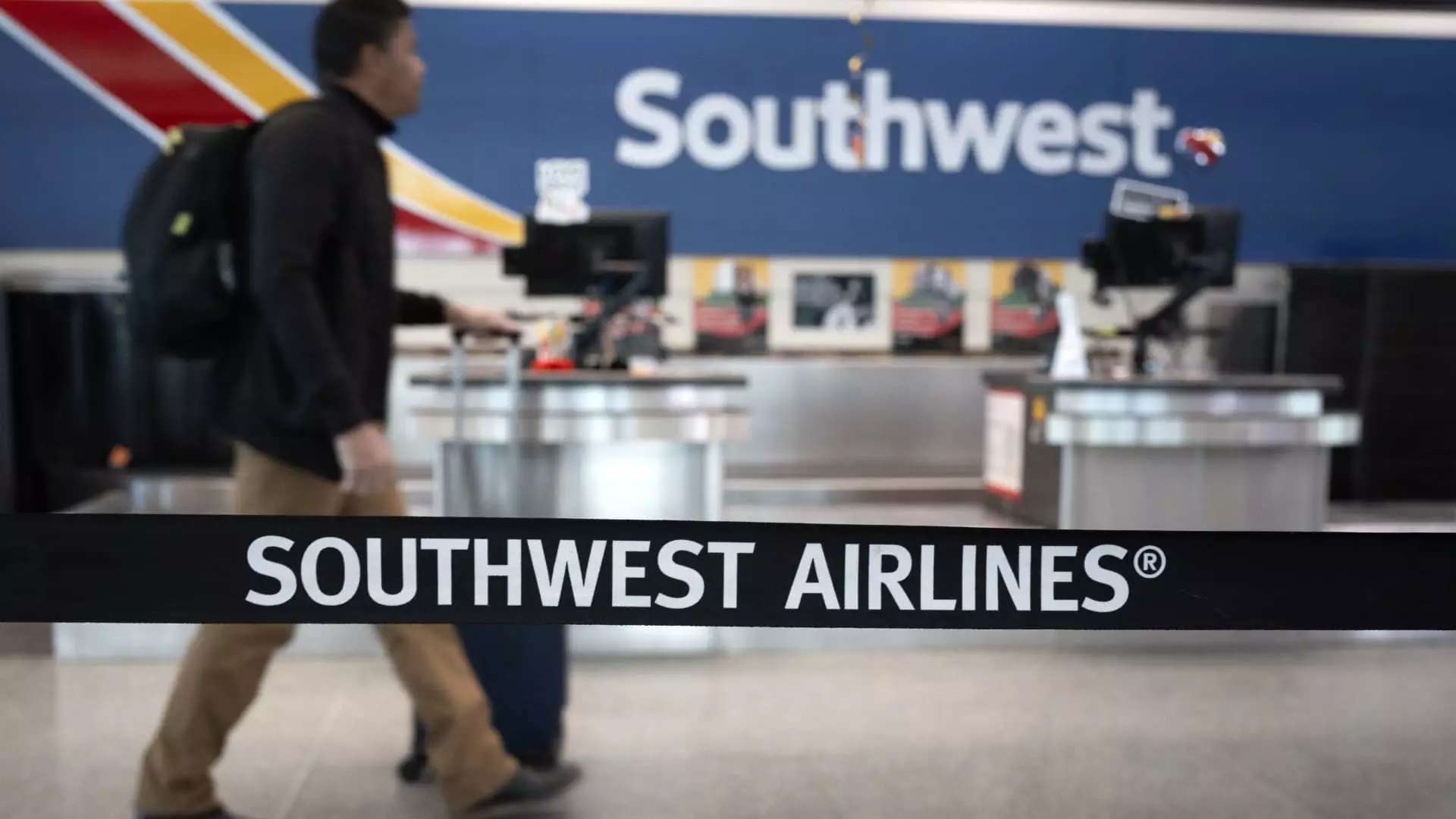For decades, Southwest Airlines has been a beloved staple in air travel, lauded for its unique policies like allowing customers to check two bags for free. This hallmark feature, cherished by passengers, is about to become a distant memory. Starting this Wednesday, Southwest will initiate baggage fees for the first time in over half a century. The move not only erodes the airline’s core philosophy of customer generosity but also signals a troubling shift in the industry towards prioritizing profit over passenger experience.
The decision feels particularly jarring given Southwest’s identity as a low-cost carrier that thrived without the baggage fee practices that have become commonplace among its competitors. A shocking $7.3 billion in baggage fees raked in by U.S. airlines last year has put immense pressure on management to adapt to a rapidly changing economic landscape. For a company once known for providing a seamless and cost-effective flying experience, the introduction of fees to check luggage feels like a betrayal to loyal travelers.
Policy Changes: What Travelers Need to Know
Beginning Wednesday, most ticket purchases will no longer include two free checked bags. While customers who booked their flights before this policy change will not be affected, the new fare structures—Basic, Wanna Get Away Plus, and Anytime—will require passengers to pay for additional luggage, a significant departure from the longstanding practice that set Southwest apart. The specifics of the new baggage fees are yet to be disclosed, but competitors typically charge around $35 to $40 for the first checked bag. This unsettling trend not only raises travel costs but also diminishes the overall experience for passengers.
Moreover, Southwest is also introducing basic-economy fares that eliminate the flexibility to make ticket changes. This structure, similar to programs already implemented by Delta and United, will further restrict customers and undermine the value they once received from Southwest’s offerings. The removal of the Wanna Get Away fare, once the airline’s lowest tier ticket, only deepens the sense of loss that comes with these comprehensive restructuring efforts.
Elliott’s Influence: Are Shareholders in Charge Now?
The anguish felt by loyal Southwest customers is compounded by the knowledge that these changes were largely influenced by Elliott Investment Management, an activist firm that acquired a stake in Southwest last year. With board room seats secured, the firm has aggressively pushed for a revamp of the airline’s legacy practices. It has become increasingly clear that shareholder demands are taking precedence over the voices of everyday travelers.
While executives tout the need for financial growth amidst rising operating costs, it is disheartening to realize that the feelings of frequent fliers, who preferred Southwest’s customer-friendly ethos, have been sidelined. This sort of prioritization demonstrates a concerning trend where profit motives overshadow the commitment to maintaining a positive traveler experience.
The Personal Toll on Travelers
This overarching focus on profit feels particularly acute for budget-conscious flyers, families, and individuals who depend on affordable travel options. For many passengers, the ability to check bags for free transformed air travel into a more accessible experience. The emotional weight of flying—often associated with stress and anxiety—becomes even heavier when considering the added financial burden of checking luggage. The impending changes serve only to institutionalize discomfort, turning what was once perceived as an amazing travel option into just another big box airline.
One can only wonder how Southwest’s executives expect its customer base to respond to these developments. While CEO Bob Jordan claims that the announced policy hasn’t deterred customers from booking flights, the persistent negative feedback across social media suggests otherwise. Passengers are vocal about their anger—unhappy with the thought of paying for what was once included in the ticket price—asserting that a core part of their travel experience is being stripped away.
Frequently Asked Questions: How Will Execution Play Out?
With these changes, many questions arise about how Southwest Airlines will implement this new vision for flight. For instance, how will the increased overhead baggage space be utilized under the growing restrictions on checked bags? Will travelers find themselves caught in situations where flights are overbooked, facing the frustrating reality of their luggage being sent to strange destinations for additional fees?
The anxiety associated with such scenarios raises a larger question about the future of air travel in the United States. Will more airlines follow suit, creating an increasingly monetized environment that sacrifices traveler comfort and convenience for corporate gains? If so, travelers may find themselves yearning for the days when they could simply hop on a flight without worrying about the myriad of fees that now plague the industry.
Time will tell how Southwest Airlines navigates this turbulent transition, but one thing is certain: its loyal customers deserve better.

